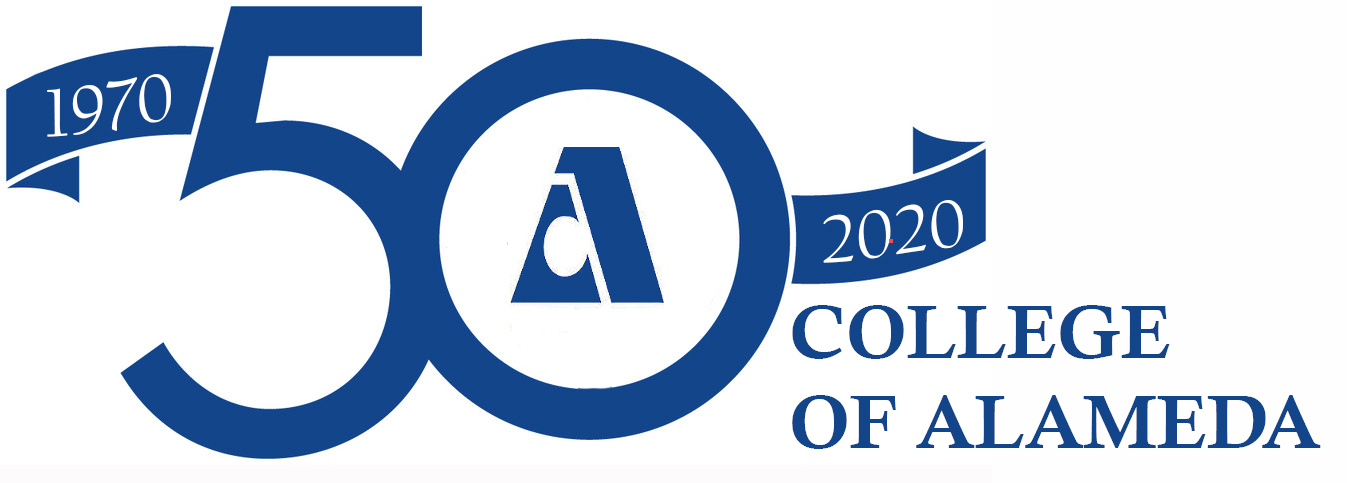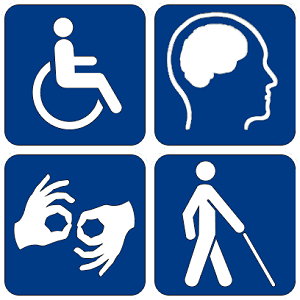Questions about your Zoom Counseling Appointment? Please use this Student Guide: Student-Guide-Zoom-SAS-Counseling-Appointment
SAS – Student Accessibility Services (formerly DSPS)
Who We Are
Student Accessibility Services (SAS) provides services designed to meet the unique educational needs of enrolled CoA students with documented disabilities. Our professional staff works with each student to provide accommodations that ensure equal access to all academic programs, and to promote students’ independence so they may realize their academic potential and reach their goals.
We are changing our name from Programs and Services for Students with Disabilities (DSPS) to Student Accessibility Services (SAS) so please note that you may see DSPS or SAS referenced in documents as we transition, these are both the same program.
Our Services
SAS offers support services and accommodations based on the specific impact of each individual student’s disability on their academic work. Our services include:
- Academic Counseling and Educational Program Planning
- Adapted Computer Equipment & Assistive Technology
- Alternate Format Media (Braille, Large Print, E-text, Tactile Graphics)
- Assistive Listening Devices
- Cognitive Skills Classes
- Diagnostic Testing for Learning Disabilities
- Learning Skills Classes for Math and English
- Note Taking Assistance
- Priority Enrollment/Registration Assistance
- Sign Language Interpreting and Real-Time Captioning
- Testing Accommodations
It is important to meet with your CoA SAS counselor each semester to request your accommodations and to review your progress. For more information, we encourage you to read the SAS Student Handbook.
SAS services are available online. SAS In-Person Services are Closed Due to the ongoing COVID-19 campus closure. Remote counseling appointments with SAS Counselors are available through ZOOM and can be scheduled using our online scheduling tool. You will be emailed your Zoom Counseling Appointment details along with the ZOOM meeting link. Please make sure to provide the best contact email and phone number when scheduling your session.
FAQs
A disability is a physical or mental impairment that substantially limits one or more major life activities, including but not limited to: caring for oneself, performing manual tasks, seeing, hearing, eating, sleeping, walking, standing, lifting, bending, speaking, breathing, learning, reading, concentrating, thinking, communicating and working. (Americans with Disabilities Act Amendment, 2009).
Eligibility for SAS services is based on the specific educational limitations caused by the individual’s disability.
Rights and Responsibilities of Students with Disabilities
Students with disabilities have the right:
- To participate voluntarily in Student Accessibility Services
- To participate in other courses, programs, or activities offered by the college
- To be evaluated based on ability, not disability
- To appeal a decision regarding accommodations through the student grievance process
Students with disabilities have the responsibility:
- To provide professional documentation of disability to the college
- To request accommodations in a timely way
- To follow SAS procedures for obtaining accommodations
- To work cooperatively with SAS to determine and implement accommodations
- To comply with the Student Rules of Conduct as written in the College catalog
- To maintain the academic standards of the college
Faculty Rights and Responsibilities
Faculty have the right:
- To set academic standards
- To evaluate the student based on the standards of the class and to grade accordingly
- To advise the student to contact SAS if the student requests an accommodation and the instructor has not received written notification from the SAS office
Faculty have the responsibility:
- To work with SAS to provide for accommodations in a fair and timely way
- To adjust instruction without fundamentally altering the program
- To provide handouts in a timely way for alternate media provision
- To select textbooks in a timely way so e-text can be ordered from the publisher
- To respect and maintain a student’s right to confidentiality about his/her disability
- To contact the SAS office if there is disagreement about the accommodation
- To work with SAS to ensure that instructional web pages are accessible to students who use assistive technology
- To work with SAS to ensure that instructional videos are captioned
Faculty do not have the right to refuse to provide accommodations, to question whether the disability exists when accommodations have been authorized by SAS, or to request to examine the student’s documentation.
SAS Rights and Responsibilities
SAS has the right:
- To request and receive current documentation that supports the need for accommodations
- To deny a request for accommodations if the documentation demonstrates that the request is not warranted or if the individual fails to provide appropriate documentation
- To suspend or terminate services if the student repeatedly does not comply with SAS policies or procedures or does not meet the academic standards established by the college.
SAS has the responsibility:
- To assist faculty in providing or arranging accommodations and/or auxiliary aids
- To hold student information confidential except where permitted or required by law
- To communicate to students, faculty, and staff the process to request accommodations
- To verify the student’s disabilities and authorize accommodations based on educational limitations caused by the disability
- To establish requirements for measurable progress and abuse of services. If a student does not adhere to established procedures, SAS will notify the student of the possibility of suspension or termination of SAS services.
There is no Special Education in postsecondary education, although some students may choose to participate in classes offered by SAS.
If you participated in Special Education classes in K-12, you will find that your rights and responsibilities and the services provided to you are different in college. That is because the federal law that applies to K-12 (the Individuals with Disabilities Education Act or IDEA) does not apply to postsecondary schools.
You may want to read an article by Paul Grossman, chief regional attorney of the San Francisco Office for Civil Rights (OCR), entitled Attorney Paul Grossman on Legal Rights for College Students with LD.
Also, please see the chart below for more information about the differences between high school and college support services for students with disabilities.
| High School Support Services | College Level Support Services |
| The school district is responsible for evaluating and documenting the disability. | Students are responsible for providing current documentation of their disability to the college. |
| An IEP meeting is held to determine placement and appropriate services. | Students working with college professionals will determine if and/or what services are appropriate. |
| Once a disability is documented, services are made available and included in the student’s daily schedule. | Even after documentation has been provided and appropriate accommodations have been identified, students must request the accommodations each time they are needed. |
| Special classes or placements must be available for students. | Students, with advice from their counselors, set their own academic goals. |
| Specific goals and objectives are determined for each student receiving services. | Colleges are not required to provide special classes or programs for students with disabilities. |
| Parents are notified and must give permission for any decisions regarding their son or daughter. | Parents are not notified of services their son or daughter requests unless the student grants permission for that information to be released. |
| Teachers, administrators, and parents advocate for students. | Students must advocate for themselves. |
| Reevaluation of students is conducted by the school on a regular basis (generally every three years.) | Reevaluation of a disability is not generally required if a student remains continuously enrolled in the college. |
| Students may be evaluated using differential standards and curriculum may be fundamentally altered. | The laws mandate equal access to instruction but they do not require fundamental alteration of a program. |
SAS – Student Accessibility Services (formerly DSPS)
Hours of Remote Operation
Monday – Friday 8:00-4:00 (hours may vary through June-July)
Please see our SAS Contact Information page for staff/faculty email addresses or you may email the SAS at SAS.Alameda@peralta.edu to request assistance.
New College of Alameda SAS Students: See our Applying for SAS Services page for application and New Student appointment information
Continuing and Returning Students: Schedule your online SAS Counseling appointment here
Scheduled Fall 2021 Services Closures: September 6 (Labor Day), October 20 (Professional Development Day), November 11 (Veteran’s Day), November 25-26 (Thanksgiving)
Priority Registration for Spring 2021 begins November 16th! See flyer information sheet for details
SAS (formerly DSPS) Priority Registration Fall and Summer 2021 flyer (Word version)
Priority registration Fall and Summer 2021 flyer (pdf version)
Fall 2021 Important Dates and Deadlines (link takes you to the Peralta Community College District website)

